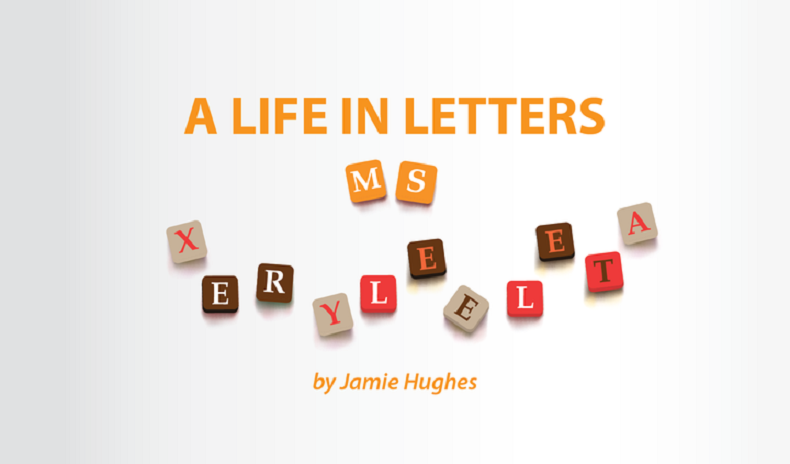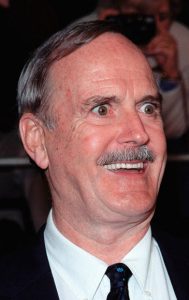Correlation Between MS and Harry Potter Characters is Pure Magic
Written by |


Perhaps the most famous MS advocate today isn’t a patient, but the daughter of one. Author J.K. Rowling lost her mother to multiple sclerosis in 1990, something she describes as “an enormous shock.” In order to help fight and defeat this disease, she donated £10m to found the Anne Rowling Clinic in Edinburgh, Scotland, and since 2010, doctors and researchers there have been hard at work trying to cure MS and other neurological diseases like Parkinson’s and Alzheimer’s.
I am a long-time admirer of Ms. Rowling, and not just because of her philanthropic gestures. As a writer, I am amazed by a woman who, with only her words and imagination, created an entire literary universe and used it to become wealthier than the Queen of the U.K. Her wizarding world is populated by hundreds of characters of all shapes and sizes — everything from Aragog the Acromantula to a wizard named Blaise Zabini. And whether they’re in the Order of the Phoenix, Dumbledore’s Army, or the Death Eaters, all of them have a role to play.
Knowing that Ms. Rowling has a bone to pick with MS, which took her mother much too soon, I can’t help but think many of the characters in her works are shaped by this disease. And, while I can’t choose a favorite, there are three that inspire me as an MS patient.
Hermione Granger

Hermione Granger was played by Emma Watson.
Bookish, brilliant, brave, and bold—Hermione Granger is an idol for many young women who read and enjoyed Rowling’s books. There is no class too difficult and no tome too thick for this feisty muggle-born witch. If there’s a problem that needs solving, her first stop is always the library. When Harry Potter asks why, his best friend Ron Weasley responds, “Because that’s what Hermione does. When in doubt, go to the library.”
I admire Hermione for her cool head and her mad research skills. This is a girl who, unlike many of her classmates, didn’t grow up knowing there were such things as witches and wizards. Rather, she was born to a pair of dentists in London. She’s not afraid of a challenge, and she never gives up — even when a situation seems impossible. Hermione helps me remember that there’s hope in research and that I should never stop trying to find answers.
Remus Lupin

Actor David Thewlis played Remus Lupin.
One of Hogwart’s many Defense Against the Dark Arts professors, Remus Lupin has a pretty tough row to hoe. When he was five, he was attacked by a werewolf and infected with lycanthropy, turning him into a werewolf as well. His condition can never be cured, so whenever there’s a full moon, he hides himself away from the world. “It is very painful to turn into a werewolf,” he says. “I was separated from humans to bite, so I bit and scratched myself.”
Remus wasn’t born with his condition; it was thrust upon him by an evil and vindictive creature. As an MS patient, I can definitely identify with that. I know what it feels like to have your body betray you, to feel intense pain, and to know that no treatment — no matter how powerful — can ever completely cure the illness inside you. But Remus doesn’t let this make him wicked. Instead, he works to stamp wickedness out. A fantastic teacher, a good friend, and a nurturer at heart, there’s much about him to admire. Remus Lupin helps me remember that though MS may impact my body, it doesn’t have to warp or cripple my mind or heart.
Nearly-Headless Nick

Comic genius John Cleese played Nearly-Headless Nick.
The house ghost of Gryffindor, Nearly-Headless Nick is one of the most underrated characters in the Harry Potter universe. He is the ghost of Sir Nicholas de Mimsy Porpington, a wizard who perished in a botched execution on Oct. 31, 1492. But he’s also a loyal friend and ally.
Beloved by students and faculty alike, Nick is fairly upbeat for someone who died a grizzly death and now roams the drafty hallways of a castle. But that doesn’t mean he’s without his share of sadness. When he was executed, his head didn’t quite come off cleanly. A half an inch of skin and sinew remained. Hence, the moniker nearly-headless. “I mean, nobody wishes more than I do that it had been quick and clean, and my head had come off properly,” he tells Harry. “I mean, it would have saved me a great deal of pain and ridicule.”
Like Remus, something terrible happened to Nick — something that altered him for eternity — and because of his quasi-headless status, he is barred from competing in something called the Headless Hunt. His handicap keeps him from doing something he enjoys. Sounds familiar, doesn’t it? However, Nick finds new things to do and people to befriend, and if he can do it, so can we.
J.K. Rowling may not have intended these characters to encourage patients like us, but I can’t help but think that something of her mother informs each of them. And that, like the world they inhabit, is pure magic.
Note: Multiple Sclerosis News Today is strictly a news and information website about the disease. It does not provide medical advice, diagnosis, or treatment. This content is not intended to be a substitute for professional medical advice, diagnosis, or treatment. Always seek the advice of your physician or other qualified health provider with any questions you may have regarding a medical condition. Never disregard professional medical advice or delay in seeking it because of something you have read on this website. The opinions expressed in this column are not those of Multiple Sclerosis News Today, or its parent company, Bionews Services, and are intended to spark discussion about issues pertaining to multiple sclerosis.



Daphne
Thank you for a most inspiring, touching piece
Jamie Hughes
Thank you so much, Daphne! I had fun writing this one, and I'm thrilled to know it resonated with you as a reader.
Teresa Wright-Johnson
Jamie,
That was excellent. I really enjoyed reading this column and it is indeed inspirational. Superb analogies.
Jamie Hughes
Thanks so much, Teresa! Glad it struck a chord.
Malissa Smitha
Wow! Just Wow! Thank you for your amazing work and insight
Jamie Hughes
Thanks, Malissa. I'm so glad you enjoyed the piece!